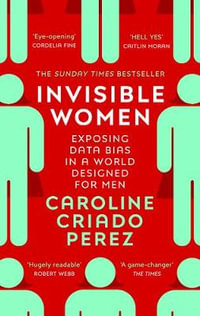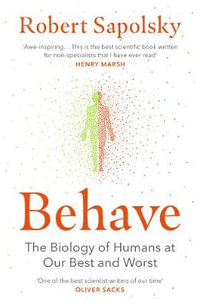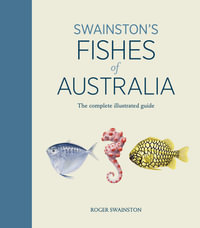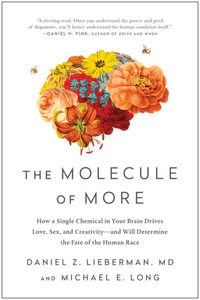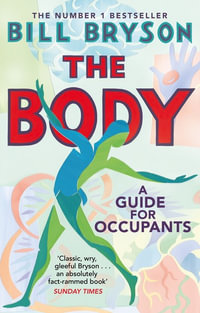
At a Glance
264 Pages
2 x 11.2 x 18
Paperback
$14.99
or 4 interest-free payments of $3.75 with
Aims to ship in 5 to 10 business days
About The Author
Paul Davies is a theoretical physicist, cosmologist, astrobiologist, author and broadcaster. On 1 September 2006 Paul Davies will take up a new position as college professor at Arizona State University, the largest public university campus in the USA. He will have the distinctive assignment to establish a new centre on foundational questions in science, to encompass cosmology, life, astrobiology and philosophy - a think tank for addressing complex issues in these areas.
He has achieved an international reputation for his ability to explain the significance of advanced scientific ideas in simple language. He is the author of some twenty-five books including The Mind of God, The Last Three Minutes and How to Build a Time Machine. Among other awards he has won the Templeton Prize, The Royal Society's Michael Faraday Prize for science communication and a Glaxo Science Writers' Fellowship. In April 1999 the asteroid 1992 OG was officially named (6870) Pauldavies in his honour. Davies has extensive experience in all facets of the media. He writes regularly for newspapers, journals and magazines in several countries. Notable among his contributions to radio are a series of documentaries on BBC Radio 3, and his television work has ranged from chat shows to scripting and presenting various documentaries, including his own series entitled The Big Questions and More Big Questions. Committed to bringing science to the wider public, Davies engages in a heavy program of public lecturing around the world, addressing scientific and religious topics. As a supporter of the arts, he is also frequently involved in literary and artistic events both in Australia and internationally. The recipient of many awards and commendations, Davies won the Eureka Prize in 1991 for the promotion of science in Australia, and in 1993 he was presented with an Advance Australia Award for outstanding contributions to science. In 1995 Davies was awarded the Templeton Prize for progress in religion, the world's largest prize for intellectual endeavour.
Paul Davies is married, and has four children. He remains a British citizen. In addition to his passion for both traditional and contemporary art, he is interested in the history of the second world war, politics and economics. He also enjoys keeping fit and discussing geographical trivia.
In recent years more and more scientists and philosophers have begun to study this puzzle. Is our success in explaining the world using science and mathematics just a lucky fluke, or is it inevitable that biological organisms that have merged from the cosmic order should reflect that order in their cognitive capabilities? Is the spectacular progress of our science just an incidental quirk of history, or does it point to a deep and meaningful resonance between the human mind and the underlying organization of the natural world?
Four hundred years ago science came into conflict with religion because it seemed to threaten Mankind's cozy place within a purpose-built cosmos designed by God. The revolution begun by Copernicus and finished by Darwin had the effect of marginalizing, even trivializing, human beings. People were no longer cast at the center of the great scheme, but were relegates to an incidental and seemingly pointless role in an indifferent cosmic drama, like unscripted extras that have accidentally stumbled onto a vast movie set. This existentialist ethos ? that there is no significance in human life beyond what humans themselves invest in it ? has become the leitmotif of science. It is for this reason that ordinary people see science as threatening and debasing: it has alienated them from the universe in which they live.
In the chapters that follow I shall present a completely difference view of science. Far from exposing human beings as incidental products of blind physical force, science suggests that the existence of conscious organisms is a fundamental feature of the universe. We have been written into the laws of nature in a deep and, I believe, meaningful way. Nor do I regard science as an alienating activity. Far from it, Science is a noble and enriching quest that helps us to make sense of the world in an objective and methodical manner. It foes not deny a meaning behind existence. On the contrary. As I have stressed, the fact that science works, and works so well, points to something profoundly significant about the organization of the cosmos. Any attempt to understand the nature of reality and the place of human beings in the universe must proceed from a sound scientific base. Science is not, of course m the only scheme of thought to command our attention. Religion flourishes even in our so-called scientific age. But as Einstein once remarked, religion without science is lame.
ISBN: 9780141037660
ISBN-10: 0141037660
Series: Popular Penguins
Published: 1st September 2008
Format: Paperback
Language: English
Number of Pages: 264
Audience: General Adult
Publisher: Penguin UK
Country of Publication: GB
Edition Number: 1
Dimensions (cm): 2 x 11.2 x 18
Weight (kg): 0.15
Shipping
| Standard Shipping | Express Shipping | |
|---|---|---|
| Metro postcodes: | $9.99 | $14.95 |
| Regional postcodes: | $9.99 | $14.95 |
| Rural postcodes: | $9.99 | $14.95 |
How to return your order
At Booktopia, we offer hassle-free returns in accordance with our returns policy. If you wish to return an item, please get in touch with Booktopia Customer Care.
Additional postage charges may be applicable.
Defective items
If there is a problem with any of the items received for your order then the Booktopia Customer Care team is ready to assist you.
For more info please visit our Help Centre.
You Can Find This Book In

BLACK FRIDAY
RRP $26.99
$16.25
OFF

BLACK FRIDAY
RRP $24.99
$19.50
OFF




